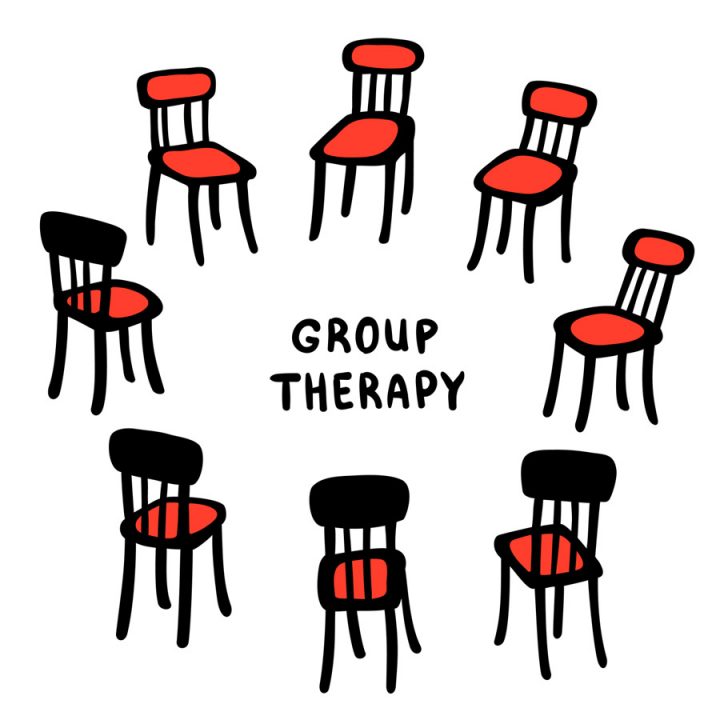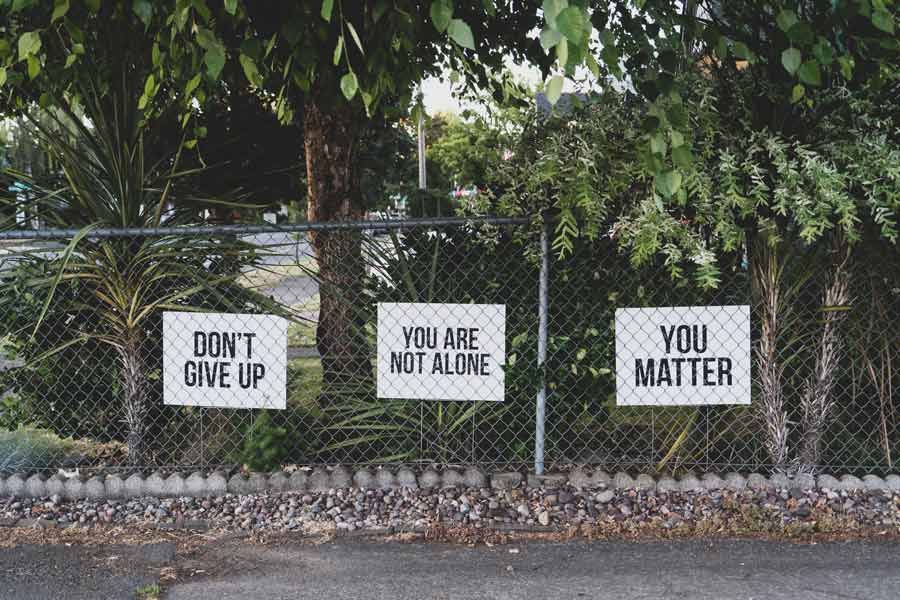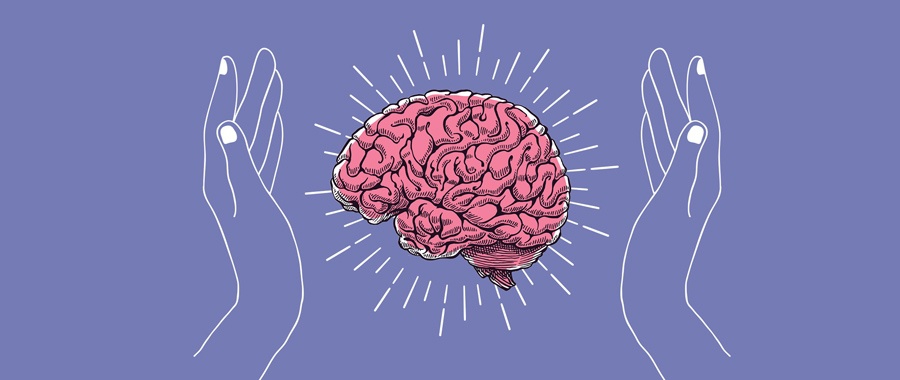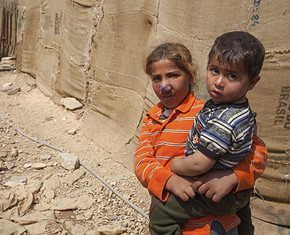The views expressed in our content reflect individual perspectives and do not represent the authoritative views of the Baha'i Faith.
Religion and medicine have been intertwined throughout history, especially in Eastern countries. In the West, the separation of church and science, since the Middle Ages has adversely affected that relationship. Since the 19th century, religion has been marginalized by materialistic philosophies which have influenced psychologists and psychiatrists including Sigmund Freud who considered religion as a neurosis. However, during the past 30 years there has been growing interest in and research studies have been conducted on the relationship between religion and spirituality and mental health. Findings have shown, for the most part, that religion has a positive effect on well-being and mental health.
“spiritual resilience is a powerful tool in… maintaining good mental health”
Today mental health is emerging as one of the most pressing topics of medical concern worldwide, requiring serious attention and support. Amidst the devastating and disabling effects of the COVID-19 pandemic, distress, anxiety, and fear have been soaring. This has led, among other negative behaviors, to a rise in opioid and other drug abuse. On the other hand, millions are turning to prayer and religious coping as well as to psychological counseling.
According to the World Health Organization, mental health is defined as “capabilities and positive adaptation that enable people both to cope with adversity and to reach their full potential and humanity.” In this light, spiritual resilience is a powerful tool in coping with adversity and maintaining good mental health.
Abdu’l-Baha, the son of Baha’u’llah, the prophet and founder of the Baha’i Faith suggested a two-pronged approach to healing that may well contribute to and expand the future concepts of healing in the future. He wrote: “There are two ways of healing sickness, material means and spiritual means. The first is by the treatment of physicians; the second consisteth in prayers offered by the spiritual ones to God and in turning to Him. Both means should be used and practised.” He explained that “an illness caused by affliction, fear, nervous impressions, will be healed more effectively by spiritual rather than by physical treatment.”
Could current psychotherapy of emotional disorders be viewed as spiritual therapy? This depends on what kind of psychotherapy it is. However, we can assume that if any therapy takes into consideration the spiritual reality of human nature it will have spiritual benefit to the patient.
There are psychological, social, and cultural factors involved in our recognizing and coping with mental health problems. Being mindful of inequalities among those who receive mental health assistance is an imperative which requires that all who provide such assistance exercise the spiritual qualities of compassion and fairness. In addressing global mental health, we need not only to improve people’s health and well-being but also to prevent diseases of the mind and mood.
In 2011, the world-leading scientific journal Nature identified what it called “Grand Challenges in Global Mental Health.”
“Know thou that the soul of man is exalted above, and is independent of all infirmities of body or mind…” – Baha’u’llah
To give a few examples of those challenges it said “depression is the third leading contributor to the global health burden, and alcohol and illicit drug use account for more than 5% of this burden. Every seven seconds, someone develops dementia, costing the world up to $609 billion in 2009. By 2020, an estimated 1.5 million people will die each year by suicide.” Governments and health professionals worldwide have a huge responsibility to mitigate these sufferings.

To demonstrate the extent of mental health challenges around the world, here is a snapshot of a report published in The Guardian in 2017. According to the Institute for Health Metrics Evaluation Global Burden of Disease, nearly 13% of the global population — some 971 million people — suffer from some type of mental illness. Estimates for the prevalence of significant mental disorders from 1990 to 2017 are as follows (from highest to lowest number of affected individuals):
- Anxiety
- Substance abuse
- Major depressive disorder
- Dysthymia (chronic, less severe depression)
- Bipolar disorder
- Dementia
- Schizophrenia
- Eating disorders
(Guardian Graphic/Source: Institute for Health Metrics Evaluation, Global Burden of Disease. 2017.)
In the United States over 45 million Americans — almost 20% of the population — are experiencing mental illness. Moreover 10.3 million adults have serious suicidal thoughts. This is an increase of almost 450,000 people as compared to the preceding year’s set of data. However, 57% of adults with a mental illness are not receiving treatment.
While these represent mental health challenges that must be addressed by health professionals, at the same time, religion and spirituality also has a role to play in mitigating the suffering and hopelessness of those affected.
The human soul is independent from physical and mental diseases and disability. Patients suffering from depression, bipolar illness, or other psychiatric disorders need to understand that although their mind and brain may be unable to concentrate or process information, their soul is not disabled or dysfunctional. As Baha’u’llah wrote, “Know thou that the soul of man is exalted above, and is independent of all infirmities of body or mind. That a sick person showeth signs of weakness is due to the hindrances that interpose themselves between his soul and his body, for the soul itself remaineth unaffected by any bodily ailments.”
As Shoghi Effendi, the Guardian of the Baha’i Faith clarified in the following statement to an individual: “You must always remember, no matter how much you or others may be afflicted with mental troubles and the crushing environment of these State institutions, that your spirit is healthy, near to our Beloved, and will in the next world enjoy a happy and normal state of soul. Let us hope in the meantime scientists will find better and permanent cures for the mentally afflicted…”
This does not mean that religion and spirituality can replace professional efforts and treatment. But mental and physical disease have no bearing on the progress of the human soul or spirit, and the thought that patients with mental illness are less spiritual is false and incorrect.
Religion is essentially a powerful spiritual force that gives deep insight into the true purpose and meaning of life. It is a “Universal Consciousness” which provides people with hope, optimism, self-esteem, and contentment in this chaotic and stressful world. Religious and spiritual involvement and community support reinforce the capacity to better cope with mental health challenges, strengthening resilience and fellowship, and diminishing isolation and loneliness.

The teachings of most religions safeguard the well-being of people and have a preventive influence with respect to physical and mental disorders. Among these teachings are the promotion of virtues such as love and unity. However, religious teachings have also been misused or misinterpreted, resulting in the promotion of hatred, fanaticism, and violence, all of which cause division and strife, which may also negatively impact mental health.
Many patients with psychiatric disorders also have spiritual needs and challenges. Therefore, spiritual care will sooner or later need to be part of a mental health program.
Current medical science defines mental health in terms of emotional, intellectual, physical, and psychosocial components. However, if we perceive human beings as noble and spiritual beings, this concept might have a positive and more meaningful effect on our attitude toward patients and mental health. Life is a journey and the human spirit is eternal which will continue on its journey toward the spiritual world. Abdu’l-Baha described it as “a world of sanctity and radiance.”
In this earthly world, Abdu’l-Baha wrote, the soul needs to acquire divine attributes in order to be prepared for the spiritual world: “That divine world is manifestly a world of lights; therefore man has need of illumination here. That is a world of love; the love of God is essential. It is a world of perfections; virtues or perfections must be acquired…” Based on these truths, the nature of mental health and its development will need to be redefined and expanded.
Harold Koenig and several other researchers conducted an extensive review of findings about the relevance and benefits of religion and spirituality at Columbia, Harvard, and Duke Universities. It included nearly 3,300 studies which were reviewed in 2010. The results showed growing evidence that religious involvement is related to better mental health. The research team found that 82% of the studies reported a positive correlation between religion and spirituality and well-being, a 73% positive relationship with regard to hope, 80% positive benefits with respect to optimism and 93% with respect to the meaning and purpose of life.
Their analysis of research data regarding depression noted that it was prevalent, in the United States, among 10-20% of the population, depending on gender. The researchers reported lower rates of depression among people who were more religious, 67% of studies showing an inverse relationship between religion and spirituality and depression.
As to the relationship of religion and spirituality and anxiety, it was noted that anxiety is a strong motivator that drives people toward religion since religion usually comforts those afflicted by anxiety. The researchers reported that 55% of the studies found that religious and spiritual interventions reduced anxiety, more so than standard intervention or a control condition.
With regard to the effect of religion on suicide, because the latter is prohibited in many religions, and due to greater hope, optimism, and sense of purpose and meaning among religious people, as well as lower rates of depression, it was reported that the rate of suicide is inversely related to religion and spirituality.

The relationship between religion and spirituality and alcohol and drug abuse has been extensively explored. The positive effect of spirituality on alcoholics and their rehabilitation through Alcohol Anonymous (AA) has been well documented. The research team reported an inverse relationship between religion and spirituality and alcohol consumption (86%). A similar inverse relationship was reported between religion and spirituality and others’ substances of abuse.
Unfortunately, there are millions of mental patients who are not receiving treatment due to a variety of challenges. These include poverty, poor education, lack of available facilities, and discrimination due to their illness. Stigmatization of mentally ill individuals is prevalent and acts as a barrier preventing many from seeking help and treatment.
In addition, assumptions that physical or mental illness is a punishment from God, the result of evil spirits, or other superstitions may undermine efforts to cope among those holding such beliefs and contribute to the negative influence of religion. Guilt, anger, and obsessive behavior with respect to one’s relationship with God and with religion may develop when a person tries to comply with the rigid and forceful beliefs of some religious traditions. As a result of these experiences in addition to some patients’ own mental conflicts and delusional thoughts, they may perceive religious beliefs as a threat to their security and may lose their trust in religion and even God.
Regarding human emotions, Abdu’l-Baha explained that “[in] this world we are influenced by two sentiments, joy and pain…There is no human being untouched by these two influences; but the sorrow and the grief that exist come from the world of matter — the spiritual world bestows only the joy!”
The Universal House of Justice, the international governing body of the Baha’i Faith, has stated that “mental illness is not spiritual, although its effects may indeed hinder and be a burden in one’s striving toward spiritual progress. In a letter written on behalf of Shoghi Effendi, the Guardian of the Baha’i Faith, to an individual Baha’i, there is this further passage: ‘Such hindrances (i.e. illness and outer difficulties), no matter how severe and insuperable they may at first seem, can and should be effectively overcome through the combined and sustained power of prayer and of determined and continued effort.’ ”
This clarification of the spiritual and material effects on human emotion opens new vistas to our concept of mental health and have profound implications for the psychology of healing.
















Comments
Sign in or create an account
Continue with Googleor